Volkswagen promises a petrol engine with the efficiency of a diesel
The new 1.5 TSI ACT Bluemotion that currently powers the new Volkswagen Golf is claimed to be as efficient as a contemporary diesel engine.
Volkswagen has developed a new engine with 1.5 TSI ACT BlueMotion. It has an output of 96 kW / 130 PS and is currently powering the Golf1/2 and Golf Variant3/4. In the future, this engine will also be available for other VW models.
Volkswagen claims that the new petrol engine offers diesel-like fuel economy (4.8 litres/100km), supreme torque and low emissions. The OEM claims that the low consumption is possible due to the new TSI Miller combustion process and the use of a high-tech turbocharger with variable turbine geometry (VTG).
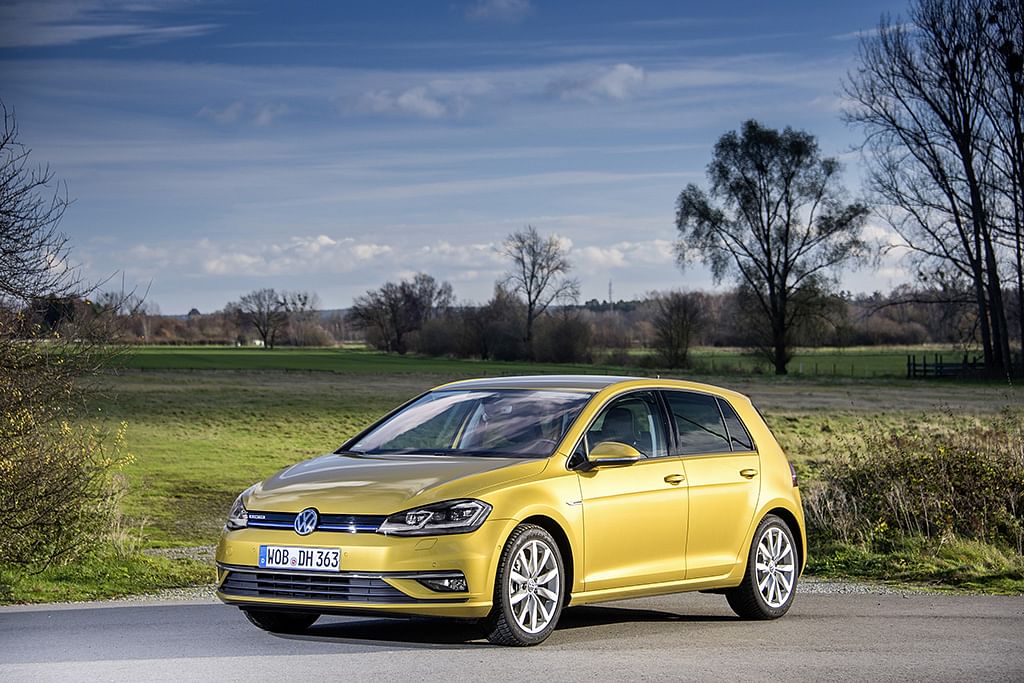
The Active Cylinder Management (ACT)either deactivates some cylinders (of the four cylinders) or completely shuts itself off in the ‘eco-coasting’ micro-hybrid mode.
The deactivation function operates within an engine speed range of 1400 to 4000rpm and at vehicle speeds up to 130kph. The driver is made aware of the barely perceptible changeover from four to two-cylinder operation by the '2-cylinder mode' notification in the instrument display.
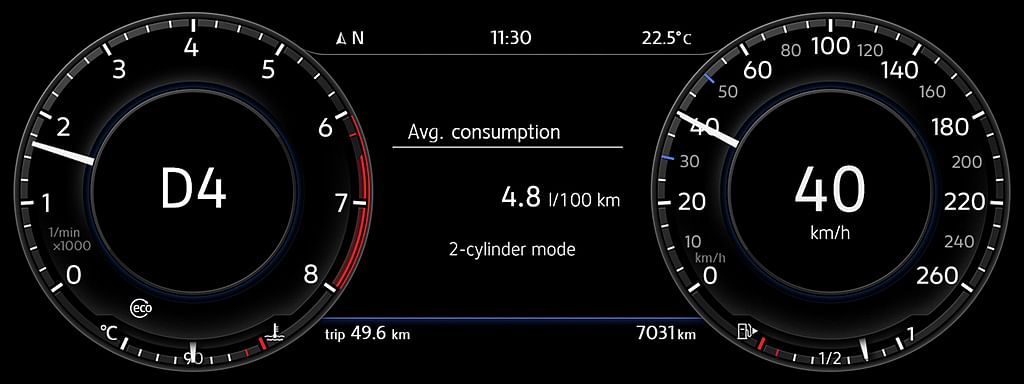
Notification of the two-cylinder mode on the instrument cluster
When the driver predictively releases the accelerator pedal for conditions ahead or is going down a slight slope, the engine management system switches off the TSI completely and decouples it from the drivetrain by disengaging the clutch. In this phase, the engine no longer needs to be 'dragged along'; the use of the vehicle's kinetic energy is thus optimised. When 'coasting', the Golf repeatedly switches over to a zero-emissions mode for brief periods of time.
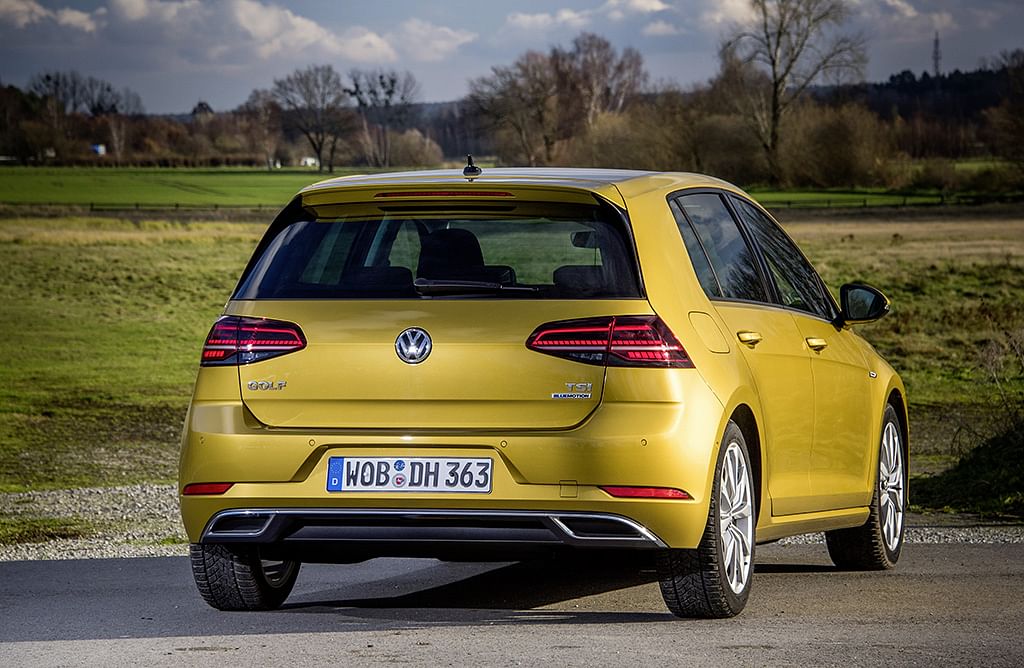
In practice, the temporary engine shut-off – the 'eco-coasting ' mode – reduces fuel consumption by up to 0.4 litres/100km. The micro-hybrid system utilises the 12-volt electrical system architecture and a compact lithium-ion battery to supply all relevant systems in the car with energy during the phases when the engine is inactive.
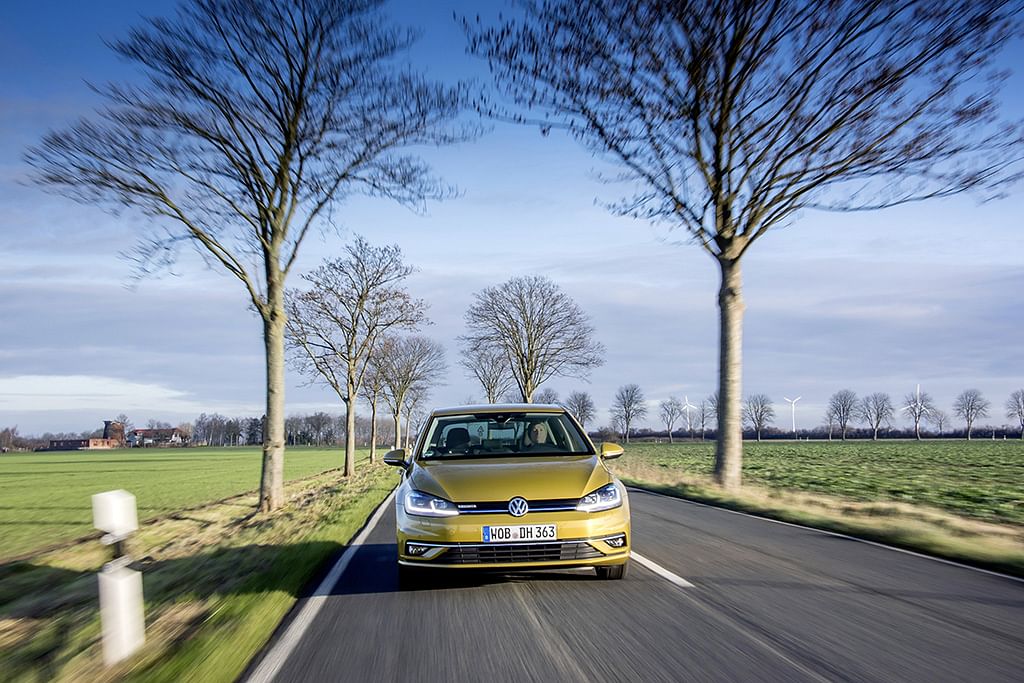
The new TSI Miller cycle innovatively controls combustion of the fuel-and-air mixture, which leads to an improvement in efficiency of up to 10 percent. As the inlet valves are open for shorter periods in the TSI Miller cycle, the cylinders must be filled with the cylinder charge at a boosted charge pressure. To do this VW utilises a turbocharger with variable turbine geometry (VTG).
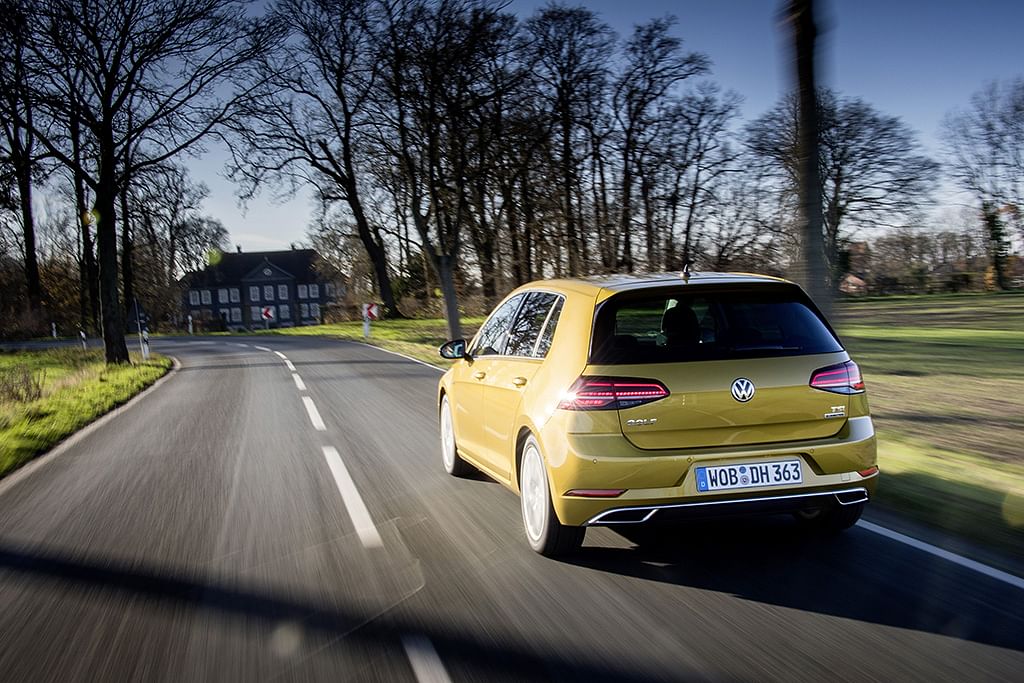
Volkswagen will be launching further derivatives of the 1.5 TSI ACT BlueMotion in global markets. Engine developers have designed the basic technical matrix to enable mild, full and plug-in hybrid drive systems and natural gas engines as well.
RELATED ARTICLES
Autoliv Plans JV for Advanced Safety Electronics With China’s HSAE
The new joint venture, which is to be located strategically near Shanghai and close to several existing Autoliv sites in...
JLR to Restart Production Over a Month After September Hacking
Manufacturing operations at the Tata Group-owned British luxury car and SUV manufacturer were shut down following a cybe...
BYD UK Sales Jump 880% in September to 11,271 units
Sales record sets the UK apart as the largest international market for BYD outside of China for the first time. The Seal...






 By Autocar Professional Bureau
By Autocar Professional Bureau
 19 Mar 2018
19 Mar 2018
 5572 Views
5572 Views





 Ajit Dalvi
Ajit Dalvi




